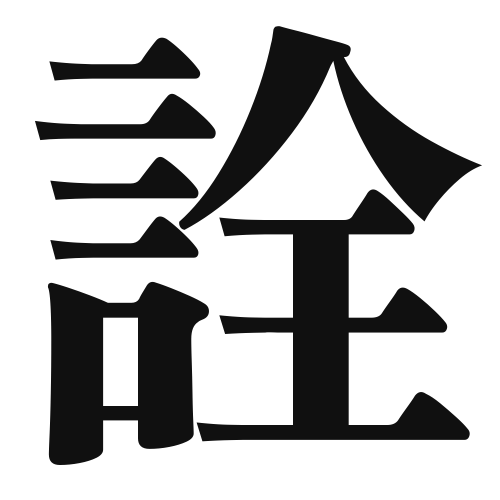1. Overview of Meaning
The kanji “詮” (sen) generally means “to investigate” or “to examine.” It conveys the idea of scrutinizing or delving into details to understand something better.
2. Formation and Radical
Formation of the Kanji: The kanji “詮” is a phono-semantic compound (形声文字), which combines a semantic component that relates to speech or language (the “言” radical) and a phonetic component that suggests its pronunciation.
Radical: The radical of “詮” is “言” (gen), which is associated with words, speech, and language.
3. Examples of Usage
Common Words and Phrases: Some common words that include “詮” are “詮索” (sensaku – investigation) and “詮議” (sengi – discussion or deliberation).
Example Sentence in Daily Conversation: “彼は問題の詮索を始めた。” (Kare wa mondai no sensaku o hajimeta.) – “He started to investigate the problem.”
4. Synonyms and Antonyms
Similar Kanji: A similar kanji is “調” (chou), which also means “to investigate” but often implies a more systematic or organized approach, such as in “調査” (chousa – survey).
Opposite Kanji: An antonym could be “無視” (mushi), which means “to ignore,” representing a lack of investigation or examination.
5. Cultural and Historical Background
Relation to Japanese Culture: The concept of “詮” is significant in Japanese culture, where thorough investigation and understanding are valued, especially in fields like literature and philosophy.
Proverbs and Idioms: An example of a related idiom is “詮無いこと” (sen nai koto), which means “pointless” or “futile,” indicating that some investigations may lead to no useful outcome.
